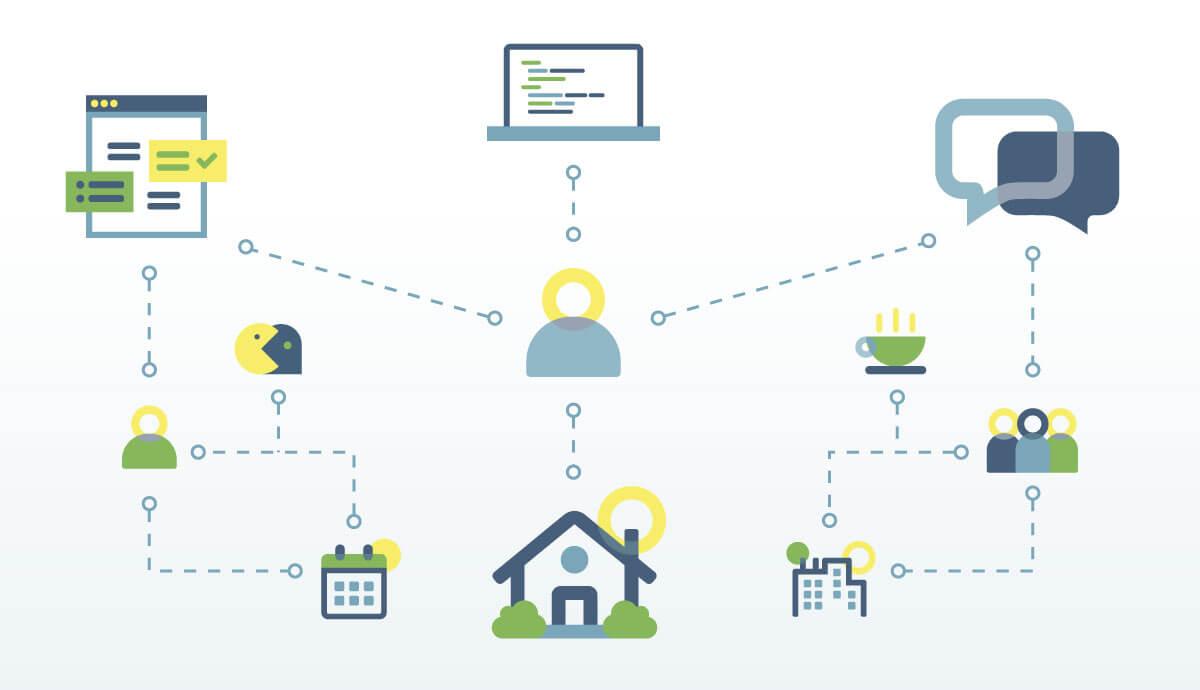
Remote how-to’s | Blog Post
Why Remote Work is a Mentality – Not a Contingency Plan
Linzi Nield
Share this post
Coronavirus is top of mind for us all, with potentially serious but also unpredictable effects on our families, communities and workplaces. For companies, the crisis begs an immediate question about the safety of the workplace – once seen as a productive space for collaboration but now a potential hub for spreading the pathogen and wreaking havoc on health and safety.
Some companies, such as tech giant Twitter, are choosing to close their offices and invoke a “remote contingency” plan. In fact, 62% of CFOs told CNBC that their companies have allocated more resources to virtual work as a result of the Coronavirus.
A successful remote work strategy is so much more than just deploying remote tools, or deciding to have employees work from home and then saying you’re a remote company. True remote work takes everyone working together within a company – from executives to managers and individual contributors – clearly articulating expectations and creating the freedom for each to own their area. It’s creating an environment for establishing trust and alignment when you can’t lean on hallway conversations or rapid encounters in the kitchen to get to know each other personally.
Virtually recreating these interactions and establishing frameworks for how work will get done is fundamental for moving to remote. To help in this transition toward a remote philosophy, we’d recommend implementing the following toolkit of best practices for you and your teams – designed to help you successfully build remote thinking into your culture:
For executive leaders:
- Set clear goals and expectations: If team members are aligned on project goals and expectations, they’ll be better set up to handle a more autonomous work environment.
- Determine communication channels: Document a set of tools employees can use to maintain communication, such as Slack for internal chat, Zoom or Hangouts for video conferencing and Jira or Trello for task-planning and project management.
- Empower your managers: They are on the front lines of driving productivity – ensure they have the information and decision-making authority to manage their teams.
For team managers
- Communicate clear expectations: Talk to your team about their expected working hours, daily structure and how you’ll receive updates about their projects.
- Create more touchpoints: Since you won’t have the luxury of ‘drive-by’ conversations, be intentional about scheduling check-ins, such as putting a daily 15-minute stand-up on the calendar or increasing the frequency of team meetings.
- Be there for your team: Let your team know you’re there to help them address the challenges of working remotely and any concerns they may have along the way.
For individuals
- Communicate with your manager: Set up video conference 1:1s each week and make sure you have face time with your manager for relationship-building and project updates.
- Hold yourself accountable: Establish structure for yourself as well as daily goals.
- Take a few breaks during the day: It’s easy to get in the zone with the lack of distraction outside of the office. Make sure to get up and give yourself mental space.
For culture-makers:
- Make space for watercooler conversation: This can take the form of virtual channels for conversation, such as Slack, or simply setting aside time during each meeting for personal interaction before diving into topics at hand.
- Celebrate wins globally: Build a digital pathway where employees can share announcements and global employees can take part in big company moments.
- Build feedback loops: Remote employees seek growth and development just like others. Create feedback processes that don’t just take place during the annual review.
Bottom line: Remote teams can have significant productivity and happiness gains. Coronavirus is an unfortunate opportunity for all leaders to think more globally about workplace culture. Building remote thinking now will help you prepare for the fast-approaching Future of Work.


